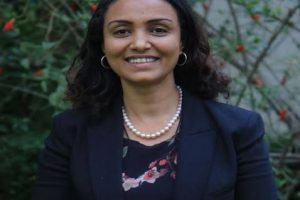
Ethiopia has a number of indigenous conflict resolution mechanisms which have been practiced for centuries by different ethnic groups to restore justice and sustain peace. These deep rooted approaches, consequently, have enabled the societies to resolve and settle disputes peacefully, establish peace, strengthen the fabrics of the communities and keep the society intact.
According to a research conducted by Daniel Mekonnen, indigenous conflict resolution mechanisms are prevalent throughout Ethiopia and had been used hugely as a means to realize justice. And, almost all ethnic groups have their own home-grown conflict resolution mechanisms to handle conflicts that may take place within the society through employing rules and customary laws of the society.
The systems even if differ from society to society, place to place, culture to culture and called by different names and implemented with varied procedures, all have one common purpose – reestablish peace, and cement the art of living among the communities and beyond through addressing the root cause of disputes, resolving conflicts, reining in grudges and avoiding provocative revenges thereby mitigating the undesirable outcome of the dispute,
These mechanisms work in accordance to the set ethical beliefs, norms, cultural and social value of the given community, as this same research stated. And the top priority of the systems is not to punish the wrongdoer; rather focuses on finding
the truth, drawing people away from conflicts and restoring the former relationships between and among disputant parties.
In this regard, among the many indigenous conflict resolution mechanisms exercised widely throughout the country, the Geda Conflict Resolution Mechanism, which has been practiced by Oromo people for long to settle down conflicts and is still playing a role is the one.
Chala Sori Secretary of the Council of Aba Geda said that the Oromo people have their own longstanding indigenous conflict resolution mechanisms which passed down from generation to generation. These well established systems have been playing key roles to maintain peace within the society and other ethnic groups to enhance social and public order.
“As other ethnic groups have their own traditional conflict resolution methods, the Oromo people address the conflicts occurred between the Oromo people and others ethnic groups by making use of the systems.”
Mentioning that the mechanisms are established based on the social, cultural values, norms, beliefs and processes of the people themselves and accepted by the community, resolving disputes by employing such cultural practice save the time and energy of the conflicted groups and cement true relationships. Most importantly, because the issues are administered by elders
[respected members of the community, religious and community leaders]
whose decision has the greatest impact, the outcomes are more binding, influential and the extent of their practicability is strong, as he stated.
“We have a longstanding culture of living together harmoniously. We have also long established systems that enable us resolve conflicts that may arise between and among our communities. However, at this time, the practicability of these systems is dwindling because we have not worked noticeably to promote the principles and norms of our community and the values of those valuable cultural assets. The media, stakeholders and the community should work persistently to aware the new generation towards the greatness of those customary mechanisms.”
Kuleni Bedasa, Sinke Mother- Oromo’s Women Traditional Conflict Dispute Resolution Mechanism- on her part said that customary dispute resolution mechanisms are the most important problem-solving tools used to end up conflicts, maintain peace and stability within the community by addressing the root causes of the disputes and circumventing the occurrences of extended conflicts.
These customary practices are entrenched. For instance, the Sinke Oromo’s Mother, which is part and parcel of the Geda System, has been serving for thousands of years to resolve the conflicts encountered between and among the communities, she added.
According to her, in Oromo culture, Sinke’s mothers do not only work to restore peace within the community. But they also bless and send their men to warfronts with customary rituals after they thoroughly discuss the case and weigh its importance.
However, currently the practice is eroded owing to various reasons. Failure to transmit the values and norms of the community to the generation is one of the limitations. To effectively employ the mechanisms and avert the occurrences of conflicts, all concerned bodies, the government, the communities should promote the value of such customary practices. Equally, they should exert utmost effort to instill these valuable assets in the new generation, Kuleni underscored.
The Ethiopian Herald April 3, 2019
BY TAMERU REGASA




